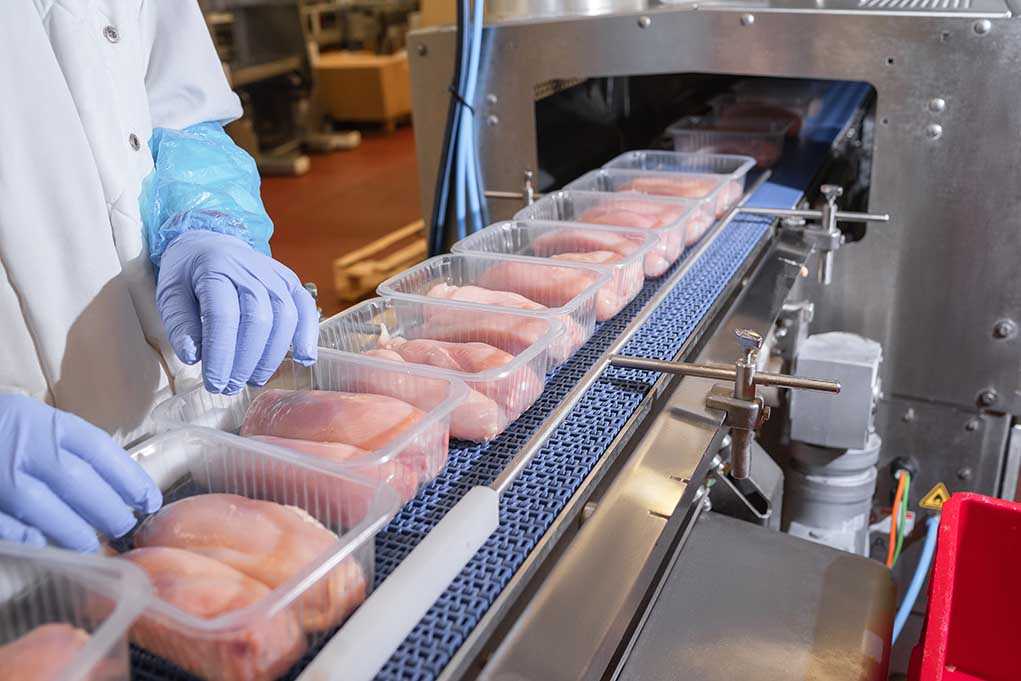
Aldi urgently recalls chicken trimmings contaminated with dangerous plastic pieces, posing serious choking hazards for consumers who may have already purchased the affected products.
Key Takeaways
- BM Foods Ltd is recalling Aldi’s Chicken Cooked Meat Trimmings (400g packs) with batch code 50328453 and best before date of July 4, 2025 due to plastic contamination
- Customers should not consume the affected products and return them to any Aldi store for a full refund
- The Food Standards Agency has issued an official warning regarding the recall
- Several other major retailers including Lidl are simultaneously facing similar recalls for contamination issues
- Consumers can verify recall information on the Food Standards Agency and Chartered Trading Standards Institute websites
Urgent Recall Notice for Aldi Shoppers
The Food Standards Agency has issued an immediate warning for consumers who have purchased Aldi’s Chicken Cooked Meat Trimmings as the products may contain dangerous plastic fragments. The affected items, manufactured by BM Foods Ltd, are specifically 400g packages with batch code 50328453 and a best before date of July 4, 2025. This contamination poses a significant choking hazard, particularly for elderly shoppers and children who may not detect the foreign material before consumption. The presence of plastic in food products represents yet another quality control failure in our food supply chain.
“If you have bought any of the above products do not consume them. Instead, return them to your nearest Aldi store for a full refund. For further information, please visit help.aldi.co.uk/s or contact customer services on 0800 042 0800,” according to The Food Standards Agency.
Aldi has taken steps to address the situation by placing recall notices in all stores that sold the contaminated product. These notices explain to customers why the product is being recalled and provide clear instructions on how to obtain a refund without requiring a receipt. This standard procedure helps protect consumers from potential harm, though questions remain about how such contamination occurred in the first place. Food safety regulations are supposed to prevent such incidents through rigorous quality control measures at manufacturing facilities.
Pattern of Food Safety Concerns Across Major Retailers
Alarmingly, Aldi’s chicken recall is just one of several current food safety alerts affecting major retailers. Lidl is simultaneously recalling its Harvest Basket Hash Browns in 750g bags due to potential metal contamination. The affected products, identifiable by batch number 5144L with a best before date of May 24, 2027, similarly pose a serious choking hazard to consumers. This pattern of contamination across different retailers raises significant questions about oversight and quality control standards in our food production systems.
“Lidl GB is recalling the product due to the potential presence of foreign bodies (metal) which may present a choking hazard. If you have bought the above product we advise you not to eat it. Customers are asked to return this product to the nearest store where a full refund will be issued,” declared by Lidl.
Further compounding these concerns, Lidl has also recalled its Alesto Raw Fruit and Nut Bars due to potential plastic contamination, affecting products with best before dates of December 2025 and November 2025. Additionally, Grape Tree has pulled Raw Unsalted Macadamia Nuts from shelves due to dangerous Shiga toxin-producing E.coli contamination. These simultaneous recalls demonstrate a troubling trend in food safety lapses that could harm unsuspecting consumers who trust these established brands.
Protecting Your Family From Contaminated Products
For consumers concerned about product safety, it’s essential to regularly check for recall notices through official channels. The Food Standards Agency and Chartered Trading Standards Institute websites provide accurate, up-to-date information on all product recalls. Taking proactive measures to verify the safety of purchased items has unfortunately become increasingly necessary as manufacturing standards appear to decline. Taxpayers fund these agencies to protect public health, and they should be utilized to their fullest extent.
When purchasing packaged foods, particularly meat products which pose higher contamination risks, consumers should inspect packaging for integrity and check batch codes against recent recall notices. While this places an additional burden on shoppers, it has become a necessary precaution in today’s marketplace. The frequency of these recalls suggests systemic issues in manufacturing oversight that regulatory agencies have thus far failed to adequately address, leaving consumers to protect themselves through vigilance.
Broader Implications for Food Safety Standards
“These widespread recalls from major retailers highlight the ongoing challenges in maintaining food safety standards in an increasingly complex global supply chain,” according to BM Foods Ltd. While recalls demonstrate that detection systems are functioning, they also reveal troubling gaps in prevention. The presence of dangerous foreign materials like plastic and metal in food products should be caught during production, not after products reach store shelves. These incidents underscore the need for more rigorous quality control measures throughout the entire food production process.
Consumers rightfully expect that food products, especially from established retailers like Aldi and Lidl, meet basic safety standards. The current wave of recalls demonstrates that these expectations are not consistently being met. As government regulatory bodies continue to spend taxpayer dollars on various initiatives, ensuring the safety of our food supply should remain a top priority. Americans deserve a food system they can trust, with contamination incidents being rare exceptions rather than recurring events that consumers must constantly monitor.











